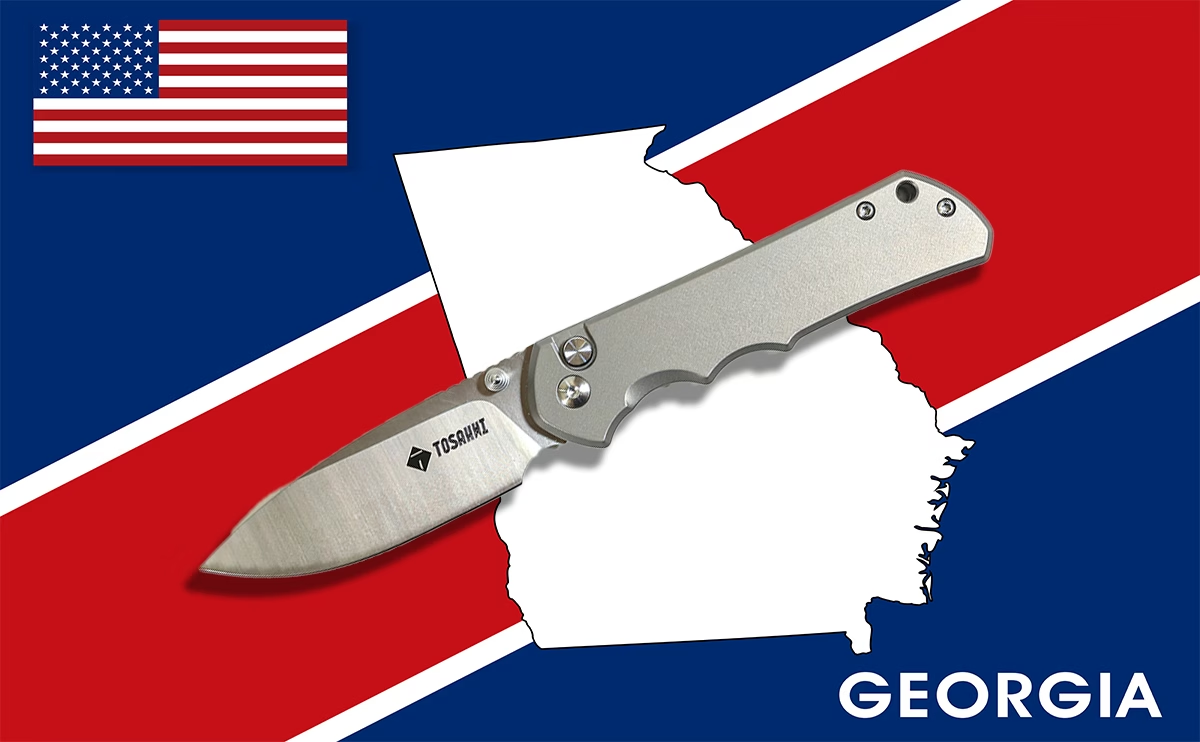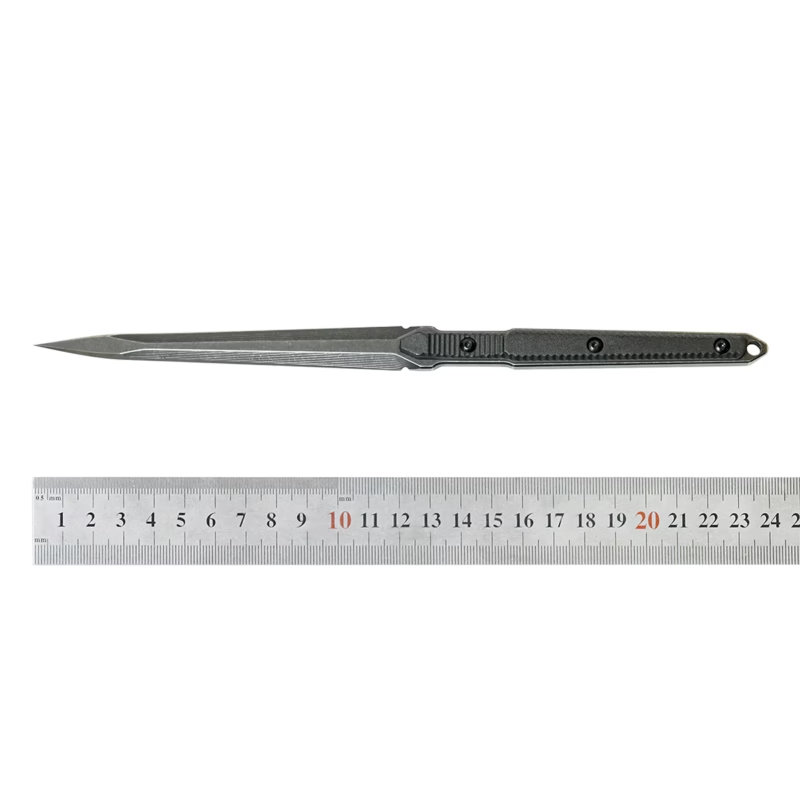Georgia Knife Laws: A Comprehensive Guide 2025 Updated

Understanding Georgia knife laws is essential for residents and visitors who carry, collect, or use knives for various purposes. Georgia has relatively permissive knife laws compared to other states, but there are still restrictions on the types of knives that can be carried and where they can be possessed. In this guide, we will break down the legal framework surrounding knives in Georgia, covering open carry, concealed carry, restrictions, and more.
Table of Contents
Legal Definition of a Knife in Georgia
Georgia knife law defines a knife as any cutting instrument with a blade over 12 inches long, including Bowie knives, daggers, switchblades, and other edged weapons. This definition is critical in determining what is legal to carry and what is restricted under state law.
Are Knives Legal in Georgia?
Yes, knives are legal in Georgia, but there are essential distinctions based on blade length, intent, and location of possession. Georgia law does not place many restrictions on owning knives, but carrying them in certain situations or places can be illegal.
Types of Knives Legal to Own in Georgia
- Bowie Knives – Legal
- Daggers and Dirks – Legal
- Stilettos and Switchblades – Legal
- Butterfly Knives (Balisongs) – Legal
- Gravity Knives – Legal
- Knives with Brass Knuckles (Knuckle Knives) – Legal
- Throwing Knives, Stars, and Tomahawks – Legal
Blade Length Restrictions
While most knives are legal to own, carrying a knife with a blade over 12 inches requires a weapons carry license (WCL). Carrying a knife exceeding 12 inches in public without this license can lead to legal consequences.
Open Carry vs. Concealed Carry Laws in Georgia
Open Carry
In Georgia, there are no restrictions on open carrying a knife if the blade is under 12 inches. This means that individuals can carry knives on their person visibly without legal repercussions, as long as the knife does not exceed the permitted blade length.
Concealed Carry
- If the blade is under 12 inches, no permit is required for concealed carry.
- If the blade is over 12 inches, individuals must possess a Georgia Weapons Carry License (WCL) to carry the knife concealed legally.

Where You Cannot Carry a Knife in Georgia
Even with lenient knife laws, Georgia restricts carrying knives in specific locations. The following places prohibit knives of any blade length:
- Government Buildings – Any state, federal, or municipal buildings
- Schools and Educational Institutions – Includes K-12 schools, colleges, and universities
- Airports – Prohibited beyond security checkpoints
- Jails and Prisons – Any detention or correctional facilities
- Courthouses – Carrying a knife in a courtroom or judicial area is strictly illegal
- Private Property with Posted Restrictions – Property owners have the right to prohibit knives on their premises
Violating these restrictions can result in misdemeanor or felony charges, depending on the severity of the offense.
Georgia Weapons Carry License (WCL) for Knives
A Georgia Weapons Carry License (WCL) is required to carry a knife with a blade longer than 12 inches. To obtain a WCL, individuals must meet the following criteria:
- Be at least 21 years old (or 18 if in the military)
- Be a U.S. citizen or legal resident
- Have no felony convictions
- Have no pending criminal charges
- Pass a background check
The application process for a WCL includes submitting an application through the local probate court and paying a fee. Once issued, the permit allows individuals to carry both firearms and knives over the legal blade limit.
Knives and Self-Defense in Georgia
Georgia follows a Stand Your Ground law, meaning individuals do not have a duty to retreat if they are legally allowed to be in a location and face an imminent threat. Knives can be used for self-defense, provided that the force used is considered reasonable under the circumstances.
However, using a knife in self-defense can lead to legal scrutiny. If a knife is used inappropriately or excessively, the carrier may face criminal charges, including assault with a deadly weapon.
Penalties for Violating Knife Laws in Georgia
Carrying a prohibited knife or violating Georgia’s knife laws can result in severe legal consequences. The penalties depend on the specific violation:
- Carrying a knife over 12 inches without a WCL – Misdemeanor, punishable by fines or jail time.
- Carrying a knife in a restricted area – Felony, punishable by up to 5 years in prison.
- Using a knife in a crime – Can escalate charges and penalties, leading to felony convictions and extended imprisonment.
Local Georgia Knife Laws
While state laws govern most knife regulations, individual cities and counties may enforce stricter ordinances. For example:
- Atlanta – Certain public buildings prohibit all knives, even those under 12 inches.
- Savannah – Additional restrictions on carrying knives in parks and recreational areas.
Before carrying a knife in any local jurisdiction, it is advisable to check municipal regulations to avoid unintended violations.
Knife Laws for Minors in Georgia
Minors under the age of 18 are generally allowed to own and carry knives, but there are restrictions:
- Knives with blades under 12 inches – Legal for minors to carry without restrictions.
- Knives with blades over 12 inches – Illegal for minors to carry without adult supervision or a WCL.
- Selling or providing a knife to a minor – This can be considered a misdemeanor offense for the seller.
Parents and guardians should ensure that minors comply with Georgia’s knife laws to prevent legal complications.
Conclusion
Georgia has lenient knife laws, allowing most individuals to own and carry a variety of knives. However, specific restrictions on blade length, carry locations, and permits must be followed to comply with the law. Understanding knife laws in Georgia ensures responsible ownership and prevents unnecessary legal issues.




